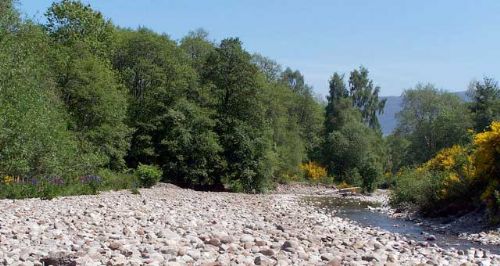
New report warns drought could spread to more areas of the country if dry weather continues
Water companies and farmers, as well as businesses and consumers, must take action now to protect water supplies from a prolonged drought, says a new report from the Environment Agency.
The Environment Agency’s Drought Prospects report, published today, warns that the drought could spread as far north as East Yorkshire and as far west as the Hampshire –Wiltshire border, if the dry weather continues this spring. The whole of the south east and east Anglia are already in drought.
The report calls on water companies to follow their drought plans, show that they are reducing leakage from their networks, consider sharing water with neighbouring companies, and encourage their customers to use water wisely now, which will put them in a better position for the summer.
The Agency is also advising farmers to look for ways to share water resources by setting up water abstractor groups and to take steps now to improve water efficiency.
The Environment Agency report found that if dry weather continues into spring:
Several water companies in the South East and Anglian regions may introduce customer restrictions such as hosepipe bans as early as March;
In the east, central and south east of England fruit, vegetable and salad growers may be affected, and there will be less water available for livestock, especially housed pigs and poultry;
There is concern that boating on the Oxford and Grand Union Canal could be restricted during the main boating season (April – October) and the levels of the Kennet and Avon Canal could be at risk;
There may be greater risks to the environment and wildlife, with plant and animal species being lost, at least temporarily, from freshwater and wetland sites, pollution incidents having an even greater impact on rivers, and the increased risk of woodland fires.
Lord Chris Smith, Chairman of the Environment Agency said: "We are working with businesses, farmers and water companies to meet the challenges of a continued drought. Our report urges water companies, farmers and other businesses to look again at ways to improve short term water storage, share water resources where possible, and reduce the amount they and their customers use.
"A prolonged drought will have long term impacts on wildlife and habitats
The Environment Agency is actively monitoring the environmental impact of the drought and will take action to mitigate these impacts wherever possible."
EnvironmentSecretary Caroline Spelman said: "The recent Drought Summit highlighted the threats of another dry winter to various parts of the country, but more areas are likely to be affected unless thereis significant rainfall in the coming months.
"We can all help reduce the effects of drought by being smarter about how we use water. Taking action now will help us all in the future."
The Environment Agency has already seen a number of fish kills this year caused by dry weather, and is preparing for an increase in environmental incidents over the summer by stepping up river monitoring and increasing its supplies of water aeration and fish rescue equipment.
The Agency is also working to help farmers top up their storage reservoirs, to ensure there are better supplies for the summer months. It has introduced a fast track process for farmers to apply to take additional water when river flows are high, and continues to be as flexible as possible around existing regulations to help farmers, who suffer significant impacts in times of drought.
Recommendations in the report include:
- Water companies should demonstrate that they have increased leakage detection arrangements in place and publicly show they have reduced leaks from their network.
- Water companies should follow their drought plans and encourage their customers to use water wisely now, which will put them in a better position for the summer.
- All abstractors, including water companies and farmers should consider the options for sharing water with neighbouring companies, such as setting up a water abstractor group.
